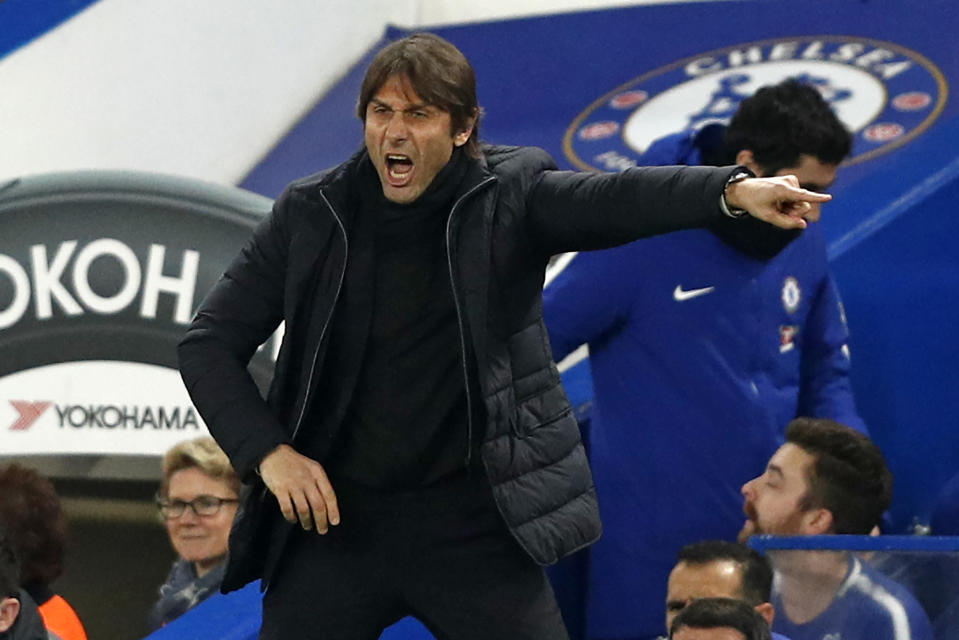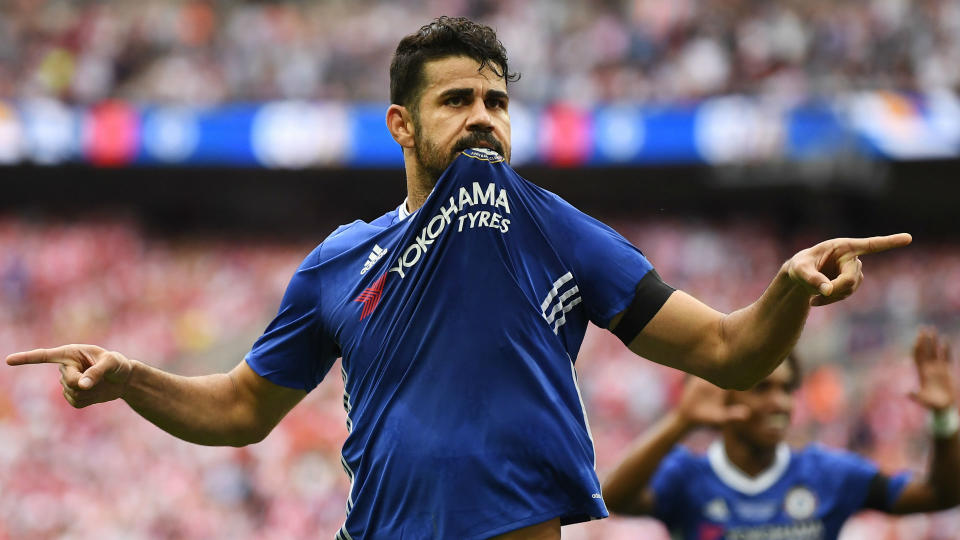Antonio Conte is winning the £320m Chelsea transfer blame game after failures in the market

It is the £320 million blame game where the objective seems to be to avoid responsibility. Antonio Conte is winning, shaping a narrative that Chelsea’s transfers are beyond his control, that his squad is supermodel-thin and that he is competing against bigger buyers.
Conte’s tactic is based around repetition, his demeanour downbeat, his desire seemingly clear: to escape with reputation untarnished when Chelsea fail to retain their title. His argument seems twofold: that Chelsea have not spent enough and that he hasn’t spent it anyway.
So it seems inconvenient to point out that Chelsea’s transfer outlay in his reign stretches to £320 million, a total that could be swelled in the final hours of the transfer window. Yet in a world where claim and counter-claim meet, gross and net spend are very different.
Chelsea have recouped about £260 million in the same time, putting their actual outlay at around £60 million. That, it goes without saying, is rather smaller than the Manchester clubs’ expenditure over the same period. And yet, given their spending in earlier years, it may be hard to afford Chelsea much sympathy when they seek to balance the books.
READ MORE: Take a tour of Alexis’ new £2m mansion
READ MORE: Liverpool won’t replace Coutinho this month
It may take a while for thinking to adjust to the recent inflation in fees, but the temptation is to look at Chelsea’s business and to argue that, while they won the league last year, £320 million has not bought them a lot. Not too many of Conte’s preferred additions – Leonardo Bonucci, Romelu Lukaku, Alex Sandro, Radja Nainggolan and co – and, as the game’s Galacticos have gone elsewhere, not too many genuine A-listers.
Perhaps Alvaro Morata comes closest, but he was on the bench at Real Madrid, just as David Luiz was surplus to requirements at Paris Saint-Germain. N’Golo Kante may merit the billing of a superstar, as the most influential player in England in successive seasons, but he is essentially a workhorse. If Kante’s success was predictable, Marcos Alonso has been turned into a triumph by Conte. Perhaps the Spaniard is the defining success for a manager who initially prospered with what the club gave him. The wing-back was not a big name, but has made a major impact.
But if Chelsea’s refined approach is to outthink rather than outbid everyone else, there is a problem: this season’s recruitment has not yielded a single unqualified success. Morata had his moments before a recent drought but there is a case for saying that, on a value-for-money basis, the free transfer Willy Caballero is the best of the bunch.
Tiemoue Bakayoko feels emblematic of a shift in economic model: a lesser player than the sold Nemanja Matic is now but six years younger. If Chelsea’s theory is that short-term pain may have been traded for long-term gain, the impatient Conte, with his seeming willingness to spend on players in the second half of their careers, appears content to ignore the business plan and the consequences after his departure.
READ MORE: Conte happy for Batshuayi to stay
READ MORE: Mkhitaryan set for Arsenal debut
Ross Barkley is the other symbolic figure, bought at 24 for a cut-price £15 million. It is a great deal financially – imagine the resale value for a man they almost paid £35 million for five months earlier – but it may not be in a footballing sense; not without a manager who is convinced of his merits, anyway. Certainly Conte has sounded underwhelmed by the Englishman.
And yet there is an incoherent element. Chelsea are not always buying young. While Barkley ought to produce a profit if he does not become a first-team regular, the £35 million addition Danny Drinkwater, who turns 28 in a few weeks, is less likely to. David Luiz, who has entered his thirties, is another whose eventual sale will probably be at a loss. Chelsea have spent January considering a host of ageing strikers and, if they would not have lost much money on Peter Crouch, the mooted move for Edin Dzeko would have resulted in writing off rather more, albeit on a rather better player.

And the striking mess, created by Conte’s lack of trust in the £33 million addition Michy Batshuayi, furthers the impression that while Chelsea are becoming more savvy in the transfer market, they are better sellers than buyers.
There are exceptions to every rule and they can regret letting Mohamed Salah go for £13 million. Equally, they are entitled to congratulate themselves on getting £8 million for Papy Djilibodji. More profitably, they banked around £120 million for Oscar and Diego Costa, one a player who flattered to deceive and the other a 29-year-old whose destructive streak was apparent in the way he had burnt his (Stamford) bridges.
Barkley may be Oscar’s belated replacement. Morata took over from Costa before the older man had even gone. Conte may contend, however, that Chelsea had a stronger squad when he took over than now. Since then, they have won the title, reached a Cup final and a semi-final, are in the knockout stages of the Champions League and on course for a top-four finish. They have not done that in spite of their business – look at Kante and Alonso’s impacts and Luiz’s form last season – but with a series of targets eluding them and some unwanted players sold for sizeable sums, the greatest advertisement for their negotiating skills may be the prices they commanded for the men they sold. And Conte rarely seems concerned by the bottom line, so his complaints have outnumbered his compliments.


